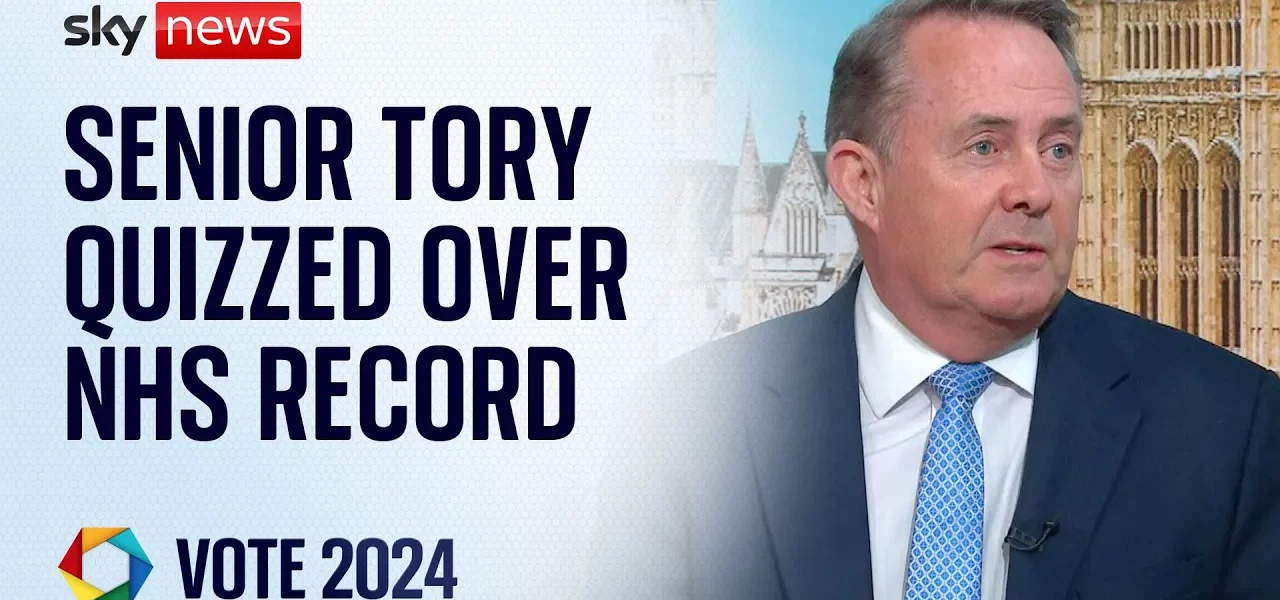UK Politics: NHS Funding and Conservative Party Insights

This article delves into the intricacies of NHS funding under current political frameworks and the Conservative Party’s positioning. With insights from former Defense Secretary, we explore how healthcare is managed and the implications of political decisions on patient care.
Introduction
The debate surrounding NHS funding in the UK has gained significant attention, particularly in light of contrasting strategies proposed by both the Labour and Conservative parties. As the nation grapples with the legacy of austerity and the impacts of the COVID-19 pandemic on healthcare services, it is crucial to assess not just the monetary allocations but also the effectiveness of these funds in improving patient outcomes. This article examines the current state of NHS funding, the effectiveness of various healthcare initiatives, and the broader implications for the Conservative Party in the upcoming elections.
NHS Funding and Performance
Understanding the NHS funding landscape involves a critical look at how funds are allocated and the outcomes achieved. Recent discussions have highlighted key issues:
- Underfunding concerns amidst rising demand for healthcare services.
- The impact of the COVID-19 pandemic on hospital operations and patient care.
- Success stories from innovative programs like ‘Hospital at Home’.
Hospital at Home Initiative
This program, introduced under the current government, aims to manage patients at home during short illness periods, preventing unnecessary hospital admissions. This approach has proven effective in:
- Reducing pressure on acute units.
- Freeing up beds for patients needing immediate care.
- Facilitating smoother transitions from emergency departments to nursing facilities.
Critique of Current Funding Models
Despite record NHS funding levels, critics argue that these funds are not translating into improved patient care. The conversation often centers around:
- The effectiveness of spending versus the amount spent.
- The variation in healthcare outcomes across different regions.
- The long-term sustainability of funding practices.
Political Landscape and the Conservative Party
The Conservative Party has maintained a significant role in shaping NHS policy, yet faces challenges from both within and outside the party. Key points include:
Internal Party Dynamics
Discontent among party members, as noted by figures like David Gawker, raises questions about the party’s direction. The challenges include:
- Balancing traditional conservative values with modern political pressures.
- Managing dissent from factions within the party.
- Responding to the rise of reformist movements led by figures such as Nigel Farage.
Public Perception and Future Strategies
As the party prepares for upcoming elections, understanding public sentiment is crucial. Strategies include:
- Clarifying party policies to regain voter trust.
- Focusing on tangible benefits of policies, such as tax reforms and support for small businesses.
- Addressing voter concerns regarding healthcare and economic stability directly.
Conclusion
The interplay between NHS funding and political strategy is pivotal as the UK approaches its next election cycle. The Conservative Party’s record on healthcare will be tested against public expectations and the realities of patient care. Moving forward, a clear articulation of policies alongside effective management of NHS resources will be essential for regaining voter confidence. Engaging the public with transparent discussions about healthcare outcomes and the implications of political decisions can foster a more informed electorate. For further insights into political strategies and healthcare reforms, explore our related articles on UK healthcare policies and Conservative Party dynamics.
“`




